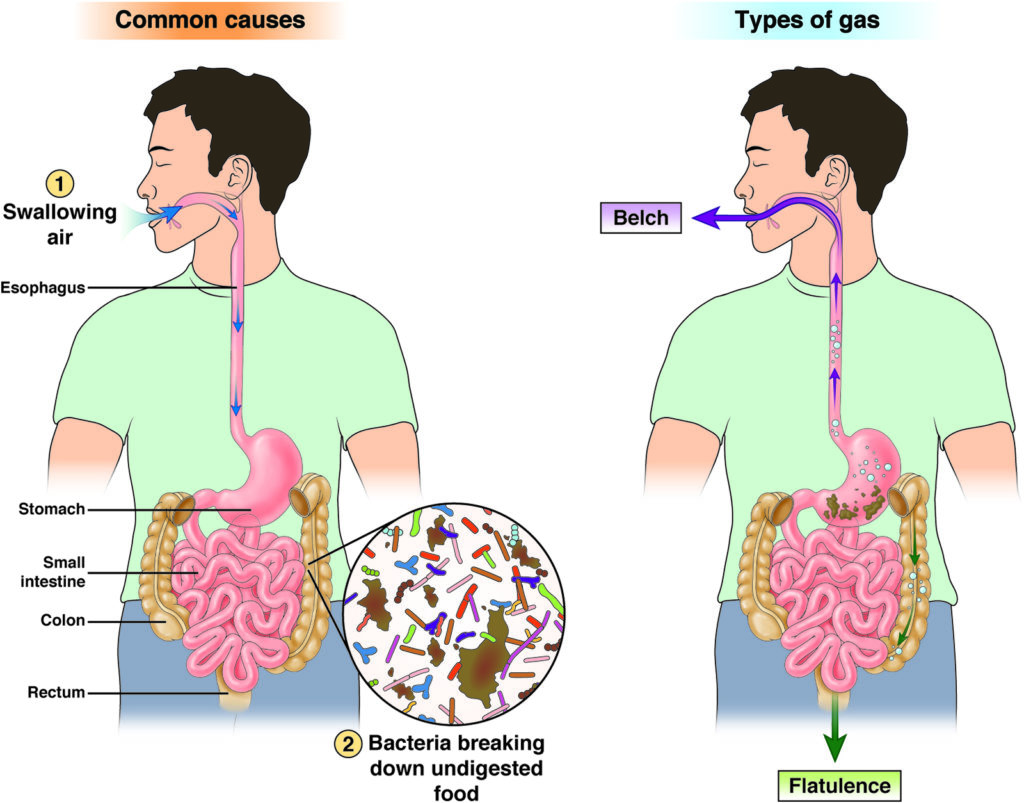Alright, let's dive right into it. Gas build up is one of those pesky issues that can make life uncomfortable, whether we're talking about your body or even your car engine. But hey, don't panic yet! Understanding what it is, where it comes from, and how to deal with it can save you a lot of trouble. So buckle up, because we're about to break this down step by step. No more guessing games, no more awkward moments. Let's get to the bottom of this!
Now, before we go any further, let me ask you something. Have you ever felt that weird bloated sensation in your stomach? Or maybe your car engine starts making strange noises, like it's struggling to breathe? That's gas build up in action, folks! It's not just some random inconvenience; it's actually a sign that something's off in your system. Stick around, and I'll explain everything you need to know to tackle this issue head-on.
Whether you're dealing with digestive issues or mechanical problems, gas build up is a common enemy we all face at some point. The good news? It's totally manageable once you understand the root causes and solutions. So, are you ready to learn how to keep those gas bubbles under control? Let's go!
Read also:Miriam Amirault Husband The Untold Story Of Love Fame And Family
What Exactly is Gas Build Up?
Let's start with the basics. Gas build up refers to the accumulation of excess gas in a system, whether it's your body or a machine. In the human body, it often results from the digestion process, where certain foods produce more gas than others. Meanwhile, in engines or industrial systems, it happens when air or vapor gets trapped in enclosed spaces, causing pressure to rise. Sounds familiar? Don't worry, we're about to unpack this further.
Common Causes of Gas Build Up
Here's the deal: gas doesn't just appear out of nowhere. There are specific triggers that lead to its formation. For instance, in the human body, consuming high-fiber foods, carbonated drinks, or dairy products can cause gas to accumulate. On the other hand, in engines, poor maintenance, clogged filters, or faulty gaskets might be to blame. Let's break it down with some examples:
- Eating too fast or swallowing air while drinking can lead to excessive gas in the stomach.
- Certain medical conditions, like irritable bowel syndrome (IBS) or lactose intolerance, can make you more prone to gas build up.
- In vehicles, a failing fuel pump or evaporative emissions system can cause fuel vapors to collect in the tank.
Recognizing the Symptoms
Now that we know what causes gas build up, let's talk about how to spot it. The symptoms can vary depending on the system affected, but here's what you should watch out for:
Symptoms in the Human Body
When it comes to your health, gas build up can manifest in several ways. You might experience bloating, abdominal pain, frequent burping, or even flatulence. These signs can be embarrassing and uncomfortable, but they're also your body's way of telling you something's up. Listen to those signals, because ignoring them could lead to more serious issues down the line.
Symptoms in Engines
As for cars, gas build up can cause performance issues. You might notice decreased fuel efficiency, rough idling, or even stalling. These problems can put a serious dent in your daily routine, so it's important to address them promptly. Remember, prevention is always better than cure!
How Does Gas Build Up Happen?
To truly understand gas build up, we need to look at the mechanisms behind it. In the digestive system, bacteria in the gut break down undigested food, producing gases like hydrogen, carbon dioxide, and methane. Similarly, in engines, fuel combustion creates byproducts that can accumulate if not properly vented. Here's a quick rundown of the process:
Read also:Subhashree Sahu A Rising Star In The Entertainment World
- In the stomach, gas forms during digestion and is released through burping or flatulence.
- In engines, fuel vapors are collected in the charcoal canister and later burned in the engine during operation.
See? It's all about balance. When things get out of whack, that's when problems arise.
Preventing Gas Build Up
Prevention is key when it comes to gas build up. Whether you're dealing with your body or your car, taking proactive steps can save you a lot of trouble. Here are some tips to help you stay ahead of the game:
For Your Health
Start by making simple lifestyle changes. Eat smaller, more frequent meals to ease the digestive process. Avoid foods that are known gas triggers, like beans, broccoli, or carbonated beverages. And hey, don't forget to stay hydrated! Drinking plenty of water can help flush out excess gas and keep things moving smoothly.
For Your Car
Regular maintenance is your best friend when it comes to preventing gas build up in your vehicle. Check your fuel system regularly, replace old parts, and ensure that all components are functioning properly. A well-maintained car is less likely to develop these issues, so invest in routine checks to keep everything running smoothly.
Effective Solutions for Gas Build Up
Now, let's talk solutions. If you're already dealing with gas build up, don't panic. There are plenty of ways to tackle it and get back to normal. Here's what you can do:
For Digestive Issues
Over-the-counter medications like simethicone can help break down gas bubbles in your stomach. Probiotics are also a great option, as they promote healthy gut bacteria. In addition, gentle exercises like walking or yoga can aid digestion and relieve symptoms. And if the problem persists, don't hesitate to consult a healthcare professional for personalized advice.
For Engine Problems
For cars, diagnosing and fixing the issue might require a bit more expertise. Start by inspecting the fuel system for leaks or blockages. Replace worn-out parts, such as fuel injectors or oxygen sensors, and consider using a fuel additive to clean the system. If you're unsure about the cause, take your car to a trusted mechanic for a thorough check-up.
Expert Insights and Statistics
According to the National Institute of Diabetes and Digestive and Kidney Diseases, up to 20% of adults in the U.S. experience symptoms of IBS, which often includes gas build up. Meanwhile, a study by the American Automobile Association found that poor fuel system maintenance is one of the leading causes of engine performance issues. These stats highlight the importance of addressing gas build up early to avoid complications.
Gas Build Up vs. Other Conditions
It's easy to confuse gas build up with other health or mechanical issues. For example, bloating can sometimes be mistaken for water retention, while engine stalling might be attributed to electrical problems. That's why it's crucial to identify the root cause accurately. If you're unsure, consult a specialist who can provide a proper diagnosis and treatment plan.
Tips for Managing Gas Build Up
Here are a few quick tips to help you manage gas build up effectively:
- Keep a food diary to track which foods trigger gas in your body.
- Exercise regularly to improve digestion and reduce gas accumulation.
- Use premium fuel in your car to minimize impurities and improve performance.
- Invest in quality air filters to prevent dust and debris from entering the engine.
These small changes can make a big difference in the long run. Trust me, your body and your car will thank you!
Conclusion
Alright, we've covered a lot of ground here. Gas build up might seem like a minor issue, but it can have significant effects on your health and your vehicle's performance. By understanding its causes, recognizing the symptoms, and taking proactive steps, you can keep those pesky gas bubbles under control. Remember, prevention is always better than cure, so don't wait until things get worse.
Now it's your turn. Have you ever dealt with gas build up? What strategies worked for you? Leave a comment below and share your experience with the community. And if you found this article helpful, don't forget to share it with your friends and family. Together, let's tackle this issue head-on and live a more comfortable, gas-free life!
Table of Contents
- What is Gas Build Up?
- Common Causes of Gas Build Up
- Recognizing the Symptoms
- How Does Gas Build Up Happen?
- Preventing Gas Build Up
- Effective Solutions for Gas Build Up
- Expert Insights and Statistics
- Gas Build Up vs. Other Conditions
- Tips for Managing Gas Build Up
- Conclusion


